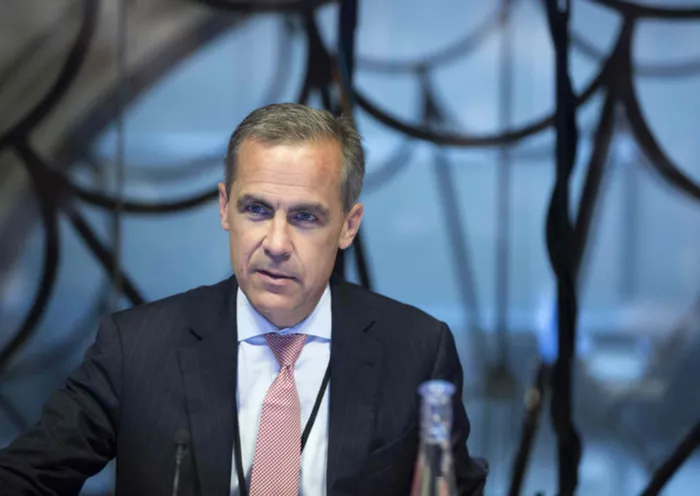Carney faces tough task at BoE

Mark Carney, the governor of the Bank of England, attends a monetary policy committee (MPC) briefing on his first day at the central bank's headquarters in London. Mark Carney, the governor of the Bank of England, attends a monetary policy committee (MPC) briefing on his first day at the central bank's headquarters in London.
London - Mark Carney's arrival this week at the Bank of England was hailed as the start of a new era, one in which he would seek to drive Britain's economy out of the doldrums.
But a run of surprisingly positive economic data has prompted some economists to wonder how long it will be before he has to think about ending stimulus rather beefing it up.
This week's first policy meeting under his leadership, which wraps up on Thursday, is unlikely to be a momentous one, in contrast to the hoopla that greeted the Canadian in London.
No changes are expected until August's meeting at the earliest.
That is when Carney could begin to push the central bank to try new ways to achieve “escape velocity” in Britain's recovery, which has just started to show some long-awaited momentum after years of economic stagnation.
Manufacturing and services sector surveys this week capped a run of stronger-than-expected data which has prompted many economists to predict growth in the second quarter could be double the 0.3 percent of the first three months of 2013.
George Buckley at Deutsche Bank said the surveys were close to the level at which, in the past, the central bank has eventually tightened monetary policy.
“It's nothing short of ridiculous how the UK numbers have turned around ahead of Mr Carney's arrival, suggesting he's got very lucky timing,” said Neville Hill, an economist at Credit Suisse in London. “The case for the (bank) doing something on Thursday is really pretty limited.”
Adding to the challenge of any quick action by Carney, several other top policymakers have been sceptical about the need for changes, including the possibility of buying more government bonds.
Only two of more than 50 economists polled by Reuters last week - before the data - predicted changes at this week's meeting, even as yields on government debt, including British gilts, rose on concerns about the US Federal Reserve eventually halting its bond-buying.
The poll gave a 40 percent chance of the BoE reviving its bond-buying programme during 2013.
The bank usually announces the outcome of policy meetings with a terse statement to financial markets. That means investors will probably have to wait for nearly two weeks to find out if Carney himself voted for more bond buying.
At recent MPC meetings, six policymakers have voted against more stimulus and only three have voted in favour, including Mervyn King who retired as governor last week.
Minutes of this week's meeting will be published on July 17.
Andrew Sentance, a former member of the policy committee who is known as an inflation hawk, said he expected an exit strategy from Britain's record low interest rates of 0.5 percent and from bond-buying would come onto Carney's agenda over the next 12 months, if economic data continued to be positive.
“Planning for the monetary exit will be the big challenge of Carney's governorship,” Sentance said.
Clearer signs of Carney's more immediate plans will emerge next month.
On August 1, the policy committee meets again, this time with new inflation and growth forecasts which could provide Carney with an opportunity to put his support behind more bond-buying, should he agree with the need for it.
On August 7, the bank's policymakers are due to report back to Britain's finance minister George Osborne on the merits of giving long-term guidance about interest rates, something Carney pioneered in Canada to give more confidence to businesses and households to spend while borrowing costs remain low. - Reuters